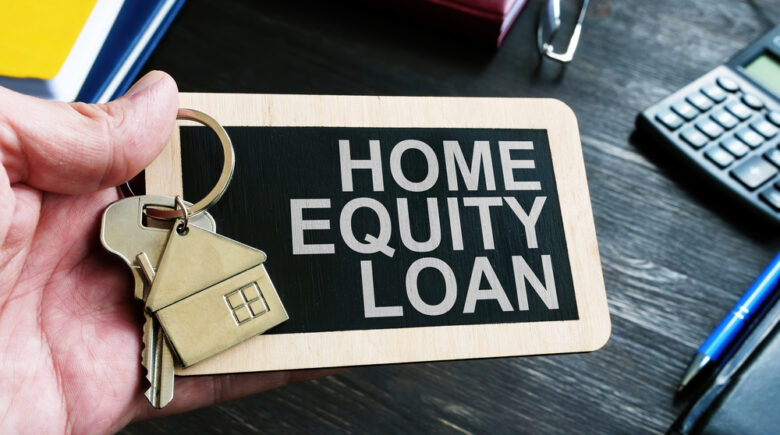People are turning to available credit options to meet their financial goals. Personal loans and home equity are common financial options for debt consolidation, funding significant expenses and home improvements. Homeowners can access funds with either a home equity or a personal loan. Personal and home equity loans are fixed-rate, fixed payments and lump-sum financial options. A personal loan is safer than home equity because it is an unsecured loan with no risk of becoming underwater.
Personal Loan
A personal loan is an excellent credit option for individuals with insufficient equity or those who are unwilling to use their equity but manage to make monthly payments. Applying for a personal loan is simple and involves the lender reviewing the credit history. Repayment terms vary from one lender to another but range from one and seven years. Personal loans have a fixed interest rate. The longer the repayment period, the higher the interest rate. Lenders determine the amount to lend and interest rate based on the credit score and income. Most people can get a personal loan, but individuals with excellent credit scores are more likely to get approved and enjoy low-interest rates. It is vital to go for a credit facility that meets borrowing needs and does not pose financial risks.
Home Equity Loans
Homeowners qualify for home equity loans regardless of their credit score. Like a personal loan, home equity loans allow borrowers to get funds for any purpose, including meeting significant expenses. Home equity is the difference between an individual home market value and mortgage balance, either positive or negative. Positive home equity is an asset that protect a borrower from a recession. Negative home equity means that borrowers cannot raise enough funds to clear a mortgage by selling their home. Home equity loan allows homeowners to access credit by converting a portion of their home into cash. Homeowners can access a huge sum of money that they repay in monthly installments over a long time.
Personal Loan versus Home equity
• Secured versus unsecured loans
A personal loan is safer than a home equity loan because it is not attached to any asset as collateral. A personal loan is unsecured, so lenders do not require any asset as collateral. Given that a personal loan is not secured, lenders rely heavily on the borrowers’ creditworthiness and borrowing history as criteria for determining whether one qualifies for a loan or not.
On the other hand, home equity is a secured loan attached to the home. It is a risky option because borrowers are forced to offer their home equity as collateral. Borrowers risk losing the possession of their home through foreclosure and the equity they have built up if they default payment. Those who choose home equity over personal loans should be confident in their repayment ability to avoid losing their homes. The lender has the right to take a borrower’s home to get repaid in case of default.
A borrower does not tie the amount borrowed to a specific asset for a personal loan. The lender will not have a way to get repaid if a borrower fails to keep up with repayment. However, failure to repay a personal loan hurts the credit score making it extremely difficult to access a loan. Besides, failure to repay a personal loan may hurt your income. Lenders can seek to recover their money from your wages through a court order.
A home equity loan has a low-interest rate because it is secured with the borrower’s home. Lenders consider home equity loans less risky because they are secured, hence the low-interest rates. Although personal loans have a higher interest rate than home equity, borrowers do not risk losing their homes and other properties if they fall behind on loan payments.
Home equity loan is not safe because the home value can drop suddenly. Home equity depends on the local housing market and mortgage principal. Ideally, the equity should increase as you repay your mortgage. However, this is not the case due to uncertainties in the housing market. Factors beyond control influence home value, a strong determinant of home equity. Home equity may shrink as you repay your mortgage, mainly if you live in a place with aging housing and a declining population.
• Underwriter
Home equity loans put a borrower’s home at risk of being underwater when they fail to repay. Underwater happens when the current principal is higher than when the borrower took the loan. In many cases, borrowers end up with an upside-down mortgage when the home value shrinks. The home value falls, but the lenders expect the borrower to continue repaying the balance.
Apart from decreasing home value, borrowers face underwriter mortgages when they miss payments. When borrowers start repaying their loans, most money covers the interest. The interest decreases as the borrower clears the principal loan balance. Failure to repay the loan for one month leads to interest accumulation putting the borrower underwriter. The lender can declare their financing default and serve a borrower with a notice to initiate a foreclosure process.
Negative Equity
Having negative equity is associated with many problems. Borrowers with negative equity struggle to finance their loans and face challenges selling their homes if the home equity loan is underwater. Borrowers with negative equity may not get sufficient funds to cover the outstanding principal leaving them with two options. First, borrowers may choose to sell the home and repay the balance with their savings. Second, borrowers may prefer to stay in their homes and continue struggling to repay the loan. Negative equity increases the chances of going into foreclosure. Borrowers may be forced to foreclose if they are having difficulties financing their loans. Besides, a home equity loan is a second mortgage, meaning that the lender appraises the borrower’s home and conducts a thorough underwriting process to approve the loan. With home equity, a borrower has two payments or mortgages to make, which reduces disposable income, increasing the risk of loan default.



